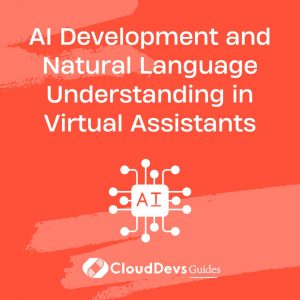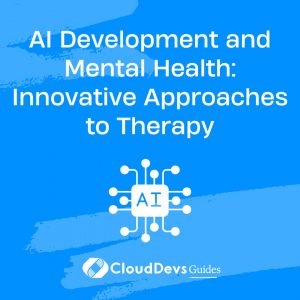Exploring AI Ethics and Responsible Development Practices
In an era where Artificial Intelligence (AI) is advancing at an unprecedented pace, the ethical considerations and responsible development practices surrounding it have become paramount. From autonomous vehicles to virtual assistants, AI is shaping our lives in ways previously unimaginable. However, with great power comes great responsibility, and ensuring AI is developed and deployed ethically is essential to avoid potential pitfalls and negative consequences. In this blog, we’ll delve into the intricate landscape of AI ethics, highlighting its significance, challenges, and the strategies for responsible AI development.
1. The Significance of AI Ethics
As AI systems become more integrated into our daily lives, their decisions and actions can have profound impacts. Whether it’s a recommendation system influencing our preferences or an AI-powered medical diagnosis, the ethical implications are far-reaching. AI ethics focuses on ensuring that the deployment of AI technologies respects human values, rights, and societal well-being.
2. The Role of Bias and Fairness
One of the primary concerns in AI ethics is algorithmic bias. AI systems learn from data, and if the training data contains biases, these biases can be perpetuated in the AI’s decisions. For instance, an AI-powered hiring system might inadvertently discriminate against certain genders or ethnicities if the historical hiring data used for training exhibits such biases. Addressing bias and promoting fairness is crucial to building AI systems that are just and equitable.
python
# Example: Mitigating bias using pre-processing techniques
def mitigate_bias(dataset):
# Apply re-sampling or re-weighting to balance underrepresented groups
balanced_data = apply_resampling(dataset)
return balanced_data
3. Transparency and Explainability
Ensuring transparency in AI decision-making processes is another vital aspect of AI ethics. Users and stakeholders should be able to understand how an AI arrived at a particular decision. Explainable AI (XAI) techniques aim to provide insights into the reasoning behind AI decisions, making them more interpretable.
python # Example: Interpretable machine learning model from interpretability_library import InterpretableModel model = InterpretableModel() explanation = model.explain(decision_instance) print(explanation)
4. Challenges in AI Ethics
Navigating the ethical landscape of AI development is riddled with challenges, owing to the complexity of both technology and societal dynamics.
4.1. Data Privacy and Security
AI systems often rely on vast amounts of personal data. Striking a balance between using data for improving AI performance and safeguarding individual privacy is a significant challenge. Data breaches can lead to severe consequences, including identity theft and unauthorized access to sensitive information.
python
# Example: Data anonymization techniques
def anonymize_data(data):
# Remove personally identifiable information (PII) from the dataset
anonymized_data = remove_pii(data)
return anonymized_data
4.2. Unintended Consequences
Advanced AI systems can exhibit unintended behaviors, especially in complex, real-world environments. This could lead to AI decisions that are unpredictable or counter to their intended purpose. For instance, an AI-driven investment system might optimize for short-term gains without considering long-term stability.
4.3. Collaborative Decision Making
AI systems are increasingly making decisions that have social and ethical implications. Deciding who is accountable for these decisions and how to involve various stakeholders in the decision-making process is an ongoing challenge.
5. Responsible Development Practices
To address the challenges posed by AI ethics, responsible development practices are crucial. These practices provide a framework for building AI systems that align with ethical considerations.
5.1. Ethical Frameworks
Ethical frameworks provide guidelines for AI development that prioritize fairness, transparency, and accountability. Organizations can adopt established frameworks like the IEEE’s “Ethically Aligned Design” or create customized frameworks tailored to their specific AI applications.
5.2. Multi-disciplinary Collaboration
Responsible AI development requires collaboration among diverse fields such as computer science, ethics, law, and sociology. By integrating different perspectives, developers can anticipate and address ethical challenges more effectively.
5.3. Continuous Monitoring and Evaluation
AI systems should undergo regular monitoring and evaluation to identify and rectify biases, unintended behaviors, and other ethical concerns. This iterative process helps ensure that AI systems remain aligned with ethical standards throughout their lifecycle.
python
# Example: Bias detection in AI models
def detect_bias(model):
biased_instances = []
for instance in dataset:
if model.predict(instance) != instance.label:
biased_instances.append(instance)
return biased_instances
6. The Future of AI Ethics
As AI continues to evolve, so will the landscape of AI ethics and responsible development practices. Striking a balance between technological innovation and ethical considerations will remain a paramount challenge. Governments, organizations, and researchers must collaborate to establish comprehensive regulations and standards for AI development and deployment.
Conclusion
AI ethics and responsible development practices are indispensable aspects of the AI revolution. Navigating the complexities of bias, fairness, transparency, and unintended consequences requires a concerted effort from the AI community. By prioritizing these considerations, we can ensure that AI technologies contribute positively to society while minimizing potential harm. As we move forward, a commitment to ethical AI development will be the cornerstone of a more inclusive and harmonious technological future.
Table of Contents









